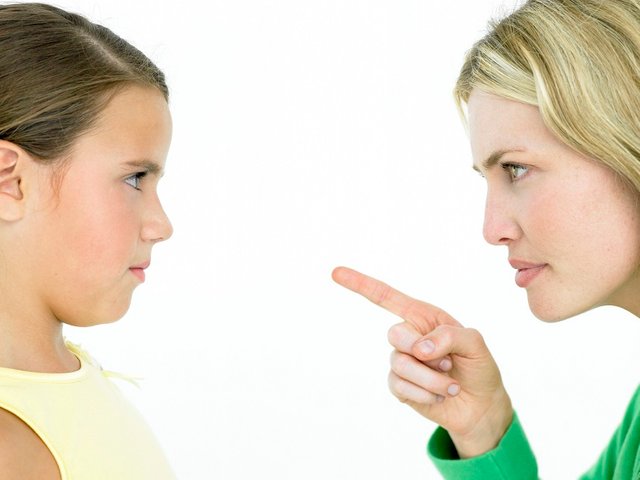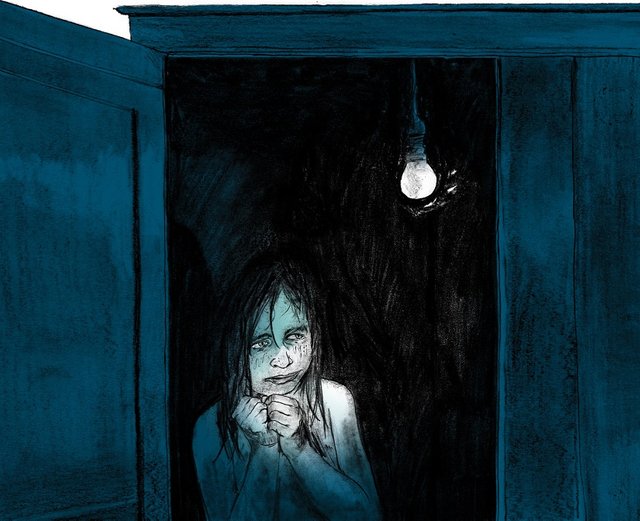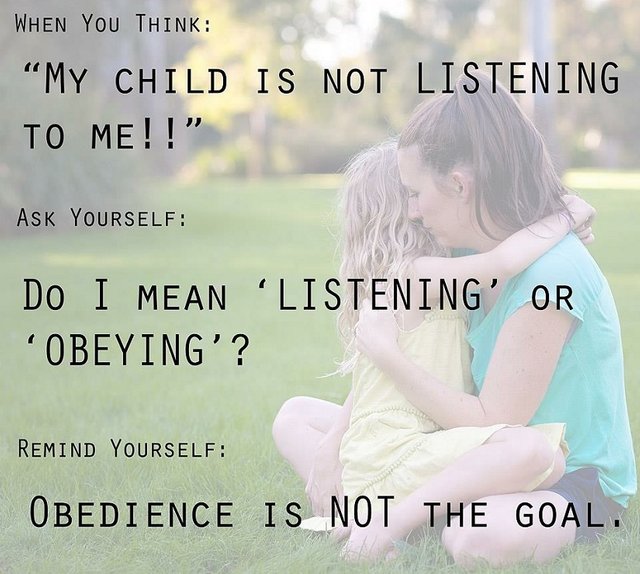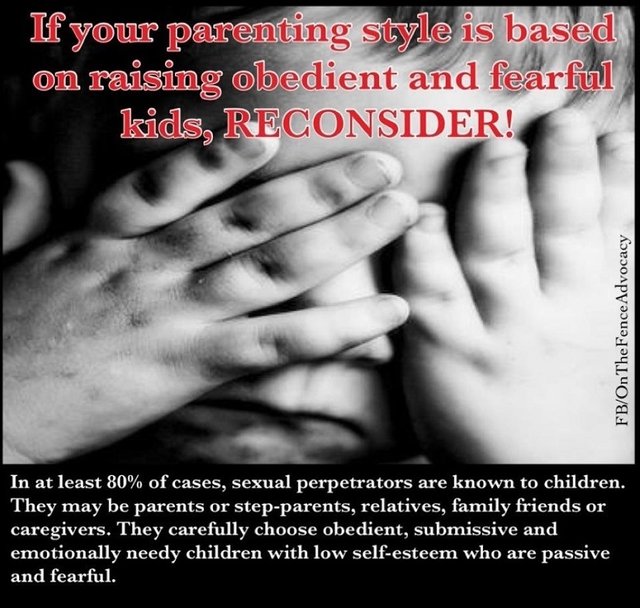On television, there are several so-called nanny shows, where families with 'defiant' children get help from a disciplinarian nanny to raise their children. The tricks of her trade often lies in a gray zone of Swedish legislation. At preschools around the country, and the rest of the world I assume, it happens that rowdy children are put alone in a janitor's closet until the child is unable to protest anymore. A man was recently sentenced to day fine since he locked in his five-year-old daughter in her room, because she refused to stay there at bed time. The law is clear, isolation and locking other people up is illegal restraint. All this while the nanny shows are some of the most popular shows on the commercial channels. In one episode of one such show one of the boys in a family struck his dad on the leg, whereupon the nanny carried the weeping boy to his room, locked the door and didn't allow him to come out until after 20 minutes, when he completely gave up all the resistance and stopped crying. But is such behavior really okay? What are the children to learn from such punishment? What are the long term consequences of such an exercise of power?

Those who advocate isolation punishment of this kind usually claim that such methods are apparently working and that they make children obey. But do we want blindly obedient children? The American researcher Mark Roberts presented a study of 18 children who had a tendency to escape from the 'timeout chair' they were first placed on when they had been rowdy. The children were divided into two groups. Nine children got a spanking (yeah, psychology is a sick science at times) while the other nine children were locked in a wardrobe for a minute while blocking the door before the children were re-placed on the 'timeout chair'. The results showed that both methods were effective. The children stopped being rowdy. Fantastic, right?
So short-term it 'works', at least for the selfish parents that wants peace and quiet and control as fast as possible. But if we're to throw empathy out the window and only evaluate the desired effects, we also have to look at the long term effects. The advocates for such parenting usually add that there is no scientific evidence that punishments of this kind would harm children in the long term. Of course, as a forensic psychologist I've witnessed many examples of young people who described the trauma, shame and fear of being locked up. But it doesn't count, since it's not 'science'. It doesn't count, since it's only 'anecdotal'. And those therapists who testify that violations of this kind are very often brought up in sessions, are also dismissed.

But how would a scientific study to clarify this actually be conducted? Perhaps like the sadistic Dr. Roberts - randomly select a large group of young children and then periodically expose half of them to forced isolation during their upbringing. But who wants to take the ethical responsibility for such a study?
An equally important issue is what happens to us. What happens to the person who regularly exercises power and place a fellow human being, even a defenseless child, in powerlessness? I'm not saying that parenthood doesn't come without the aspect of power. We must protect our children from obvious dangers and intervene when children hurt other children. But power corrupts, so where is the limit? It's a slippery slope and the child is at risk of no longer being a human but an It, an object that we control to reach our desired outcome. Of course the false belief that children are incapable of reasoning plays a part. And the imprints and patterns that are engraved in us during childhood and upbringing are deep and often unconscious. Our actions and attitudes towards others and ourselves are largely shaped by those patterns. Patterns imprinted by others which we haven't really had a chance to say no to. If you've been strictly controlled as a child, you often find it hard to know what is good for yourself and others and what is not so good. You are governed by the rules, expectations and demands of others which were integrated and internalized to become your own voice and moral compass. Your true voice has been suppressed and suffocated. If you have authoritarian parents, you risk creating a too early and false identity and taking positions without really having explored them. These individuals can be very determined in their opinions and have a strong sense of self. Nevertheless, they have a weak identity and vulnerability because they have uncritically taken over values from parents or other authorities. They are close to their families but may have difficulty separating themselves from them and they often create superficial relationships.

How are you ever to learn how to reason by always being told what to do by an authoritarian figure? And how could punishment ever encourage reasoning? Children don't need authorities that control them. They need secure adults who are curious in what the child feels and experiences. Children need a respectful, warm, empathetic and considerate environment with adults they trust enough to ask questions and reason with.
And I don't want to see obedient children. The active ingredients in obedience are fear, guilt and shame. When the children obey our adults, they do it to avoid shame and guilt, or because they're afraid of us. You can of course choose to express it as having 'respect' for us, but it's not that kind of hierarchical respect I think the world is in dire need of. Obedience to higher authority is by no means a virtue unto itself.

What I want to see is cooperation between adults and children. I long for a world characterized by curiosity, where adults and children attempt to understand each other and are ready to find solutions that work for everyone. As the children grow and become more linguistically and cognitively advanced, children can take a great deal of responsibility for finding solutions that meet everyone's needs, if encouraged. Unlike obedience, there is no quick fix to achieve cooperation. The quick solutions for obedience are threat, punishment, bribery and shaming. Collaboration is something that occurs in a true relationship between adults and children. A long-term relationship where the adult guides and takes responsibility for the quality of the interaction. A relationship where the active ingredients are curiosity, respect (equal and bi-directional), empathy, honesty and at least a slight humor.
Most of all, I feel amazement, and sometimes a kind of despair, that so few reflect on what happens to us when we uncritically abuse our power against defenseless children. It's no longer just the children who are locked up. Also, we as adults risk being locked up, willingly. In a self-made arrest outside of the humane room. And in return we get a colder and less compassionate world. The only people that will benefit are warlords and politicians.
 @SteemSwede
@SteemSwede
Source: Mark W.Roberts. Linda C.Hatzenbuehler. Arthur W.Bean. (1981). "The effects of differential attention and time out on child non compliance" Behavior Therapy Volume 12, Issue 1. http://www.sciencedirect.com/science/article/pii/S0005789481801098
Being unathoritarian creates a world full of asshole kids..
Downvoting a post can decrease pending rewards and make it less visible. Common reasons:
Submit
That's why you have to choose a path that is in between these two. There is one thing you can't demand from your children and that is respect. Like with all other people you have to earn it.
Downvoting a post can decrease pending rewards and make it less visible. Common reasons:
Submit
This falls in line with a work of John M. Gottman "Raising and Emotionally Intelligent Child"
I think that it is important for us as parents to try to discern the why of our children's behavior and properly address it rather than the what of the behavior and try to control it.
Downvoting a post can decrease pending rewards and make it less visible. Common reasons:
Submit
exactly, the off behavior is just an indication that you as a parent has missed something and that's nothing the child can ever be faulted for
Downvoting a post can decrease pending rewards and make it less visible. Common reasons:
Submit
I agree completely.
Far too many people think of animals, children, and even (dare I say it) machines as objects that have no will other than to obey.
It's a terrible world when people are so happy to subjugate and control others, yet still claim to believe in freedom.
Downvoting a post can decrease pending rewards and make it less visible. Common reasons:
Submit
Nice post
Downvoting a post can decrease pending rewards and make it less visible. Common reasons:
Submit
thanks!
Downvoting a post can decrease pending rewards and make it less visible. Common reasons:
Submit
Great post and very true. I've just become a mother and I study psychology. I hope to be able to teach my son to do the right thing because he wants to, not because he has to or because he's afraid of the consequences. I think a lot of people forget that every word they say to their kid and the way they act around them is shaping their children into the adult they will become.
Definitely got a upvote and follow from me.
Downvoting a post can decrease pending rewards and make it less visible. Common reasons:
Submit
This topic is rather difficult as it will not offer a clear-cut answer. I believe that it is best to consider a mixture of both styles. It is like many things in psychology, that one side alone is not enough to explain or create a certain outcome (i.e. nature vs. nurture discussions). Children need protection, but I also firmly believe that they need clear borders about what is acceptable behaviour. As parents you do not always have control over role models, as you cannot control the complete environment, so yes you as a parent will sometimes miss something that later needs to be corrected. And other times there are children that will not discuss with you, they will ignore you. So how will you teach them anything? Do not forget children are not fully developed adults. They don't reason the same way as we do. There are things that will have to be the way that the parents set the rules and the children will have to listen and obey, but it does not mean fear needs to be involved.
But sooner or later children have to learn that there are going to be authority figures in their lives that will not discuss anything with them (i.e. work relationships). If they do not learn this while they are children, they will have a hard time to adapt.
Also if the authorial upbringing was so wrong. We wouldn't be here anymore as every human would be damaged goods, and after so many centuries most likely irreversibly damaged.
As for the nanny shows, I think they are c..... They are viewed so we produce them to make money. They vanish as soon as no one watches them anymore and the topic will vanish. And sometimes I think those shows are an insult to psychologists, even if the "nanny's" have a psychology degree.
In the end I think that upbringing should be individually tailored to the child. There is no universal general method of parenting that will fit every child in the same way and help them to develop the best way (which is a discussion in itself as the best development is influenced by culture, society and generations). Parenting will always be a dynamic interaction between two parties. And yes sometimes the parents have to be authorial to teach a child that behaviour has consequences, that are not easy or pleasant. Even if the child is unwilling to understand through words alone. This does not mean I say hit you child or isolate it, but consider nature. No matter how far we humans might develop, in our core and very basic we are animals. Thereby we might consider a few tricks we see in other animals that have worked for centuries and did not harm the children at all. Logically there will always be deviations from the norm or social and cultural standards, but that brings me back to the individually tailored parenting.
Just a few basic thoughts about the discussion of authoritarian or non-authoritarian parenting in psychology 36 years ago and nanny shows today. Balance is the key. Don't worry about the label, worry about your children. Do what is best for them. Or when it comes to punishment, "Punishment should befit the crime" (in relation for a child, so don't go eye for an eye).
Ups. Got a little carried away while writing.
Downvoting a post can decrease pending rewards and make it less visible. Common reasons:
Submit
I remembered this old article: http://videnskab.dk/kultur-samfund/strenge-foraeldre-far-umulige-born
It seems that there is a third way: authoritative - talk to and respect your children and their rationality, but do not fake equality...
Μηδὲν ἄγαν
Downvoting a post can decrease pending rewards and make it less visible. Common reasons:
Submit